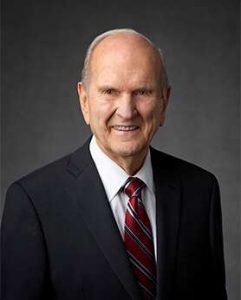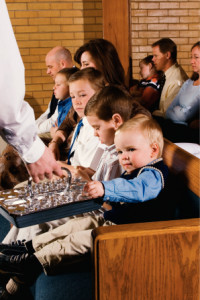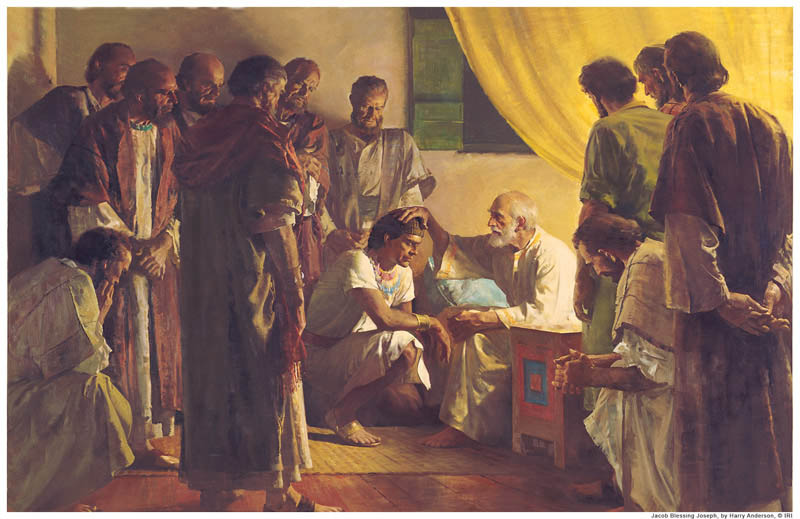In a modern world of ever-changing standards and values, it can be difficult to know what is appropriate and what should either change or stay the same.  Sometimes these habits of the world begin to creep into the Church. When I was much younger we would play a game called “Follow the Leader.” We had to do what the lead person did. If you failed to follow the designated leader you were out of the game.
Sometimes these habits of the world begin to creep into the Church. When I was much younger we would play a game called “Follow the Leader.” We had to do what the lead person did. If you failed to follow the designated leader you were out of the game.
In The Children’s Songbook is a song entitled Do As I’m Doing. This song followed right along with the sentiments of the game we played of Follow the Leader. Here are the lyrics to that song.
Do as I’m doing;
Follow, follow me!
Do as I’m doing;
Follow, follow me!
If I do it high or low,
If I do it fast or slow,
Do as I’m doing;
Follow, follow me!
Do as I’m doing;
Follow, follow me!
Inspired Leaders Help Us Find Our Way Home to the Father

President Russell M. Nelson, the current prophet
Learning to imitate others is a basic skill for a child, and it is a skill we should be honing, sharpening throughout our lives. Unfortunately, the world tells us not to follow the lead of others. The world would have us forge our own paths and do our own thing. To an extent that is admirable, but to completely discard that ability, and necessity, is dangerous. We do not know the path back to our Father in Heaven, so the Lord has provided us with inspired men as our leaders to help us along the way.
In Doctrine and Covenants 1:38 the Lord tells us that everything we are told will happen will inevitably come to pass, and it doesn’t matter if He tells us himself or if we hear it from the mouth of His servants, it is the same. We have been counseled to follow our leader, the living prophet. The Lord has already told us that the prophet’s words to us are the same as His words to us.
In the April, 2008 General Conference, Elder Quentin L. Cook spoke about the time Brigham Young called upon the brethren of the Church to drop everything and go to the high plains of Wyoming to rescue the dying members of the Willie and Martin handcart companies.
… in a visit with my grandfather, he explained that when President Brigham Young sent his father, David, and the other young men on their rescue mission,
President Young instructed them to do everything they possibly could to save the handcart companies, even at the peril of their own lives. Their acts of bravery were specifically to “follow the prophet Brigham Young” and by so doing express their faith in the Lord Jesus Christ. My grandfather told me that consistent, faithful dedication to the counsel of a prophet is the real lesson I should learn from my great-grandfather’s service. As heroic as it was for David and his associates to help rescue the pioneers, it is also valiant today to follow the counsel of our prophet.
The acts of these brethren in saving those who were freezing and starving to death on the Wyoming plains was indeed heroic. But most of our acts of obedience and imitation will not be heroic in nature, but quiet habits we acquire as we look to our prophet leaders and follow their examples.
Adopting the Ways of the Lord’s Church
As new members enter the Church they bring with them the perceptions and habits of their former life in other churches.  One telltale sign of a new convert is the habit of using a phrase their former leaders would use when standing to pray for the congregation. I have heard a number of people stand at the pulpit and say, “Let us pray,” just before they begin the prayer for a meeting. Many new members continue to use casual language in prayer, instead of the language of respect the prophets have asked us to learn to use when we pray. I’ve even heard people saying “Amen” in the middle of someone’s talk when they agree with a good point.
One telltale sign of a new convert is the habit of using a phrase their former leaders would use when standing to pray for the congregation. I have heard a number of people stand at the pulpit and say, “Let us pray,” just before they begin the prayer for a meeting. Many new members continue to use casual language in prayer, instead of the language of respect the prophets have asked us to learn to use when we pray. I’ve even heard people saying “Amen” in the middle of someone’s talk when they agree with a good point.
Are these things going to keep us out of heaven? Of course not! But these, and other habits are not part of our culture in The Church of Jesus Christ of Latter-day Saints. For many new members of the Church these habits will die a natural death as they spend time around the Saints. But for others, they tend to hang onto the old ways tenaciously, not wanting to shed the ways of other churches to adopt the ways of the Lord’s Church.
A good example of not wanting to adopt the ways of the Lord’s Church is the reluctance of some to learn to use the language of prayer. This is common, even among life-long members of the Church, especially those who have been relatively inactive for years. The Brethren have taught us repeatedly over the decades that it is a matter of respect and reverence to use the highest form of our language when addressing our God. In an April, 1993 Conference address Dallin H. Oaks spoke of the need to learn appropriate language for addressing deity.
The words we use in speaking to someone can identify the nature of our relationship to that person. They can also remind speaker and listener of the responsibilities they owe one another in that relationship. The form of address can also serve as a mark of respect or affection.
So it is with the language of prayer. The Church of Jesus Christ of Latter-day Saints teaches its members to use special language in addressing prayers to our Father in Heaven.
When we go to worship in a temple or a church, we put aside our working clothes and dress ourselves in something better. This change of clothing is a mark of respect. Similarly, when we address our Heavenly Father, we should put aside our working words and clothe our prayers in special language of reverence and respect. In offering prayers in the English language, members of our Church do not address our Heavenly Father with the same words we use in speaking to a fellow worker, to an employee or employer, or to a merchant in the marketplace. We use special words that have been sanctified by use in inspired communications, words that have been recommended to us and modeled for us by those we sustain as prophets and inspired teachers.
Ask anyone who has learned how to pray as the prophets have encouraged us to do, and you will hear the same stories over and over again. It was awkward and uncomfortable at first. Learning to speak in an archaic or old pattern of speech is a new experience, and it feels anything but natural, but only at first. We are still encouraged to learn how to use a higher form of speech than that which we use when speaking with our friends and coworkers. We are, after all, addressing our God. What a wonderful and sweet way to show our deference and reverence for Him.
Following Our Leaders Bring Great Blessings
I come back to the Primary song of Do As I’m Doing. There is safety in following the example of our prophet leaders. Sometimes we are asked to do heroic things, like rescuing the dying, but most times we are asked to change small habits in our lives to bring us into better sync with the Holy Ghost. These small changes bring great blessings into our lives. It doesn’t matter if the change we make is to include Family Home Evening in our weekly schedule, learn the language of prayer, faithfully ministering to our assigned families each month, or anything else the Brethren have asked us to do. Anytime we play Follow the Leader in our Church lives, we are the ones who get the greatest blessings.
Trackbacks:
Give Heed unto the Prophet’s Words
About Kelly P. Merrill
Kelly Merrill is semi retired and writes for https://gospelstudy.us. He lives with his wife in Idaho. His strength is being able to take difficult to understand subjects and break them down into understandable parts. He delights in writing about the gospel of Christ. Writing about the gospel is his personal missionary work to the members of the Church and to those of other faiths who are wanting to know more about Christ's gospel and His Church.







Beautifully written ! I could (and will) read this over and over again. Thank you for sharing your insights on this topic. I know I have been given food for thought and action !
Beautiful ! Thank you for writing this. I will read this over and over again! I know I will have the opportunity to speak on this with my current calling, and I will use your article as inspiration, so I especially thank you.